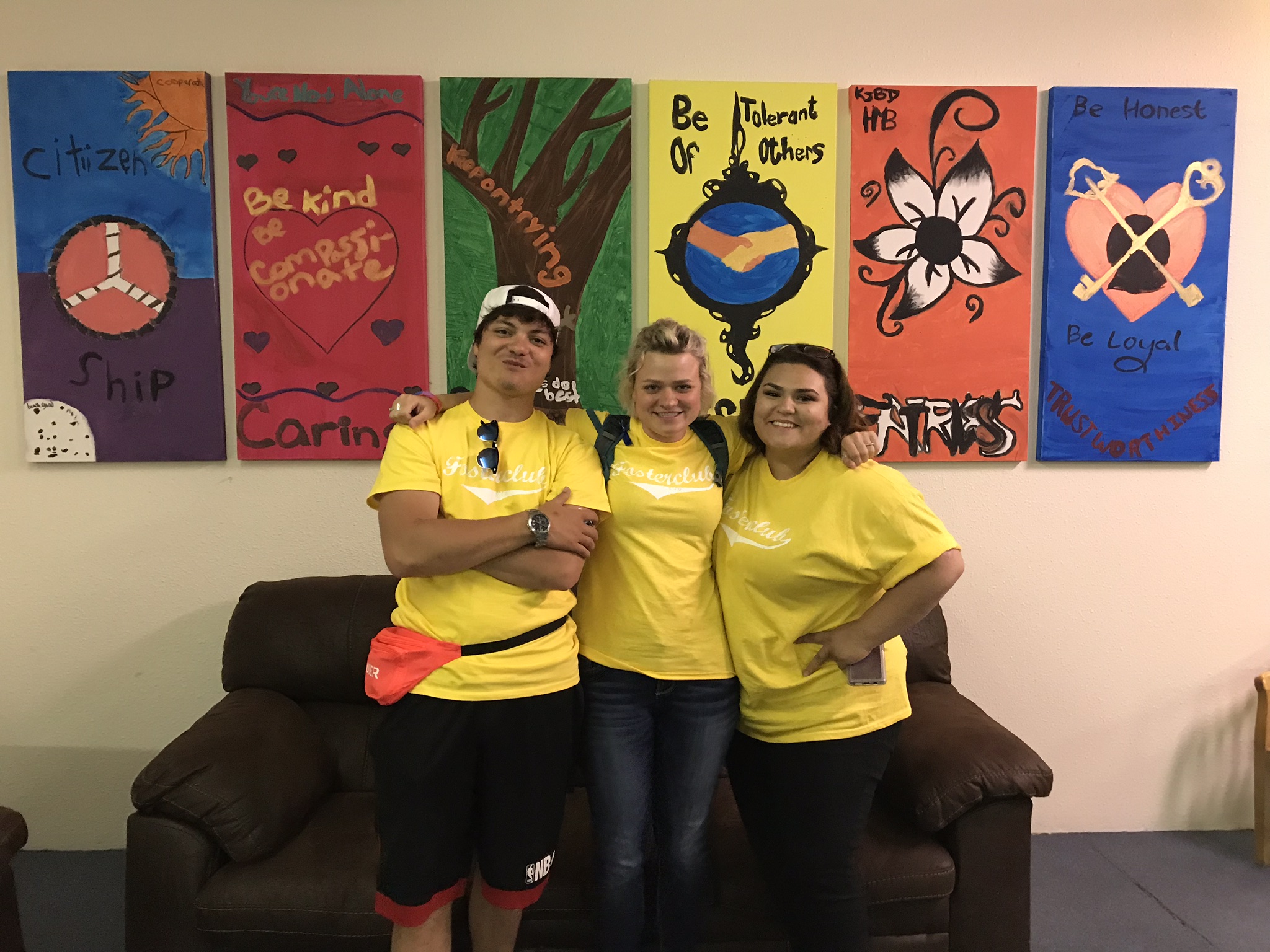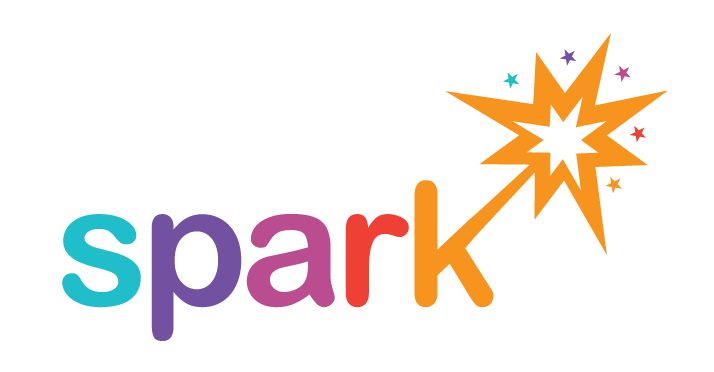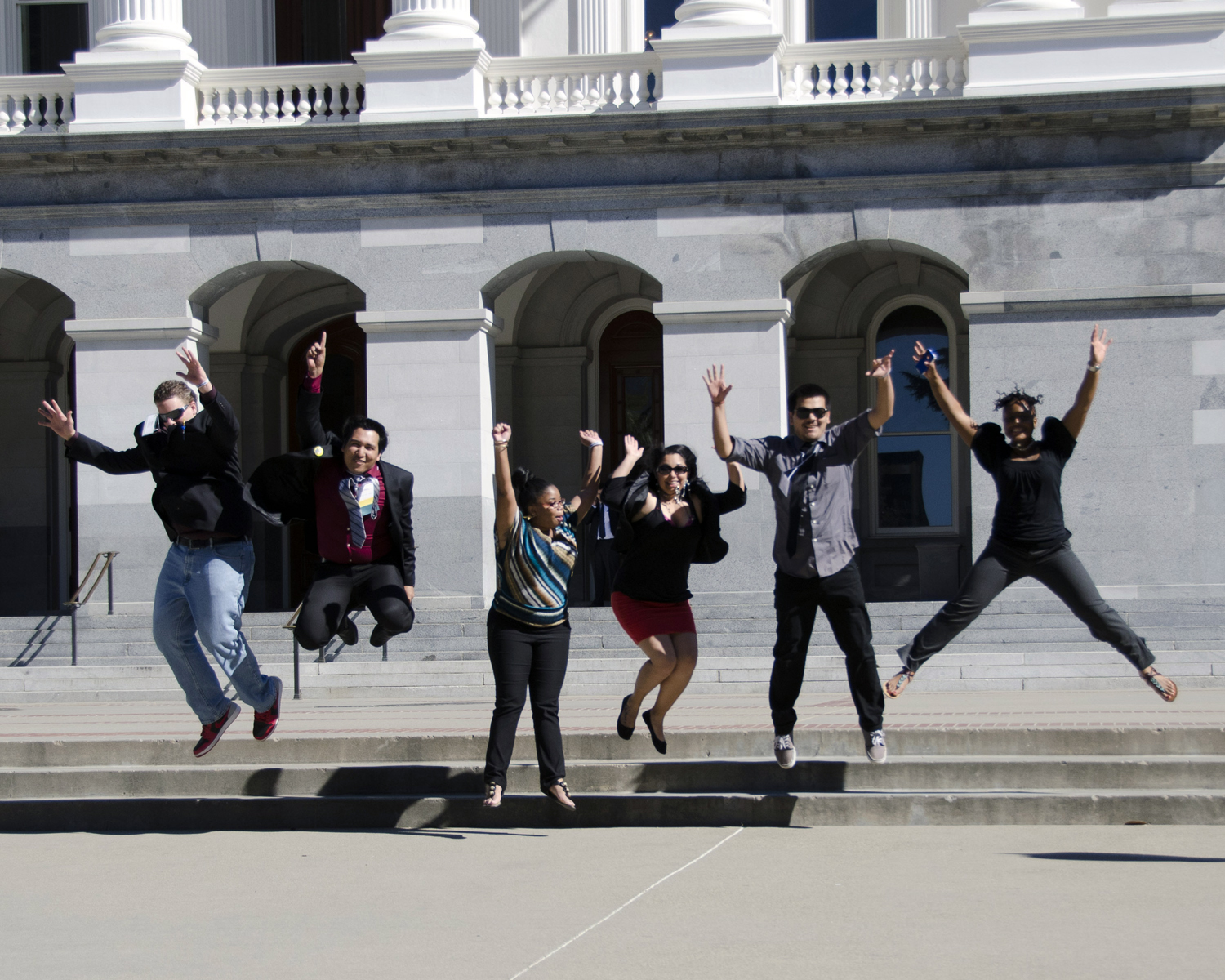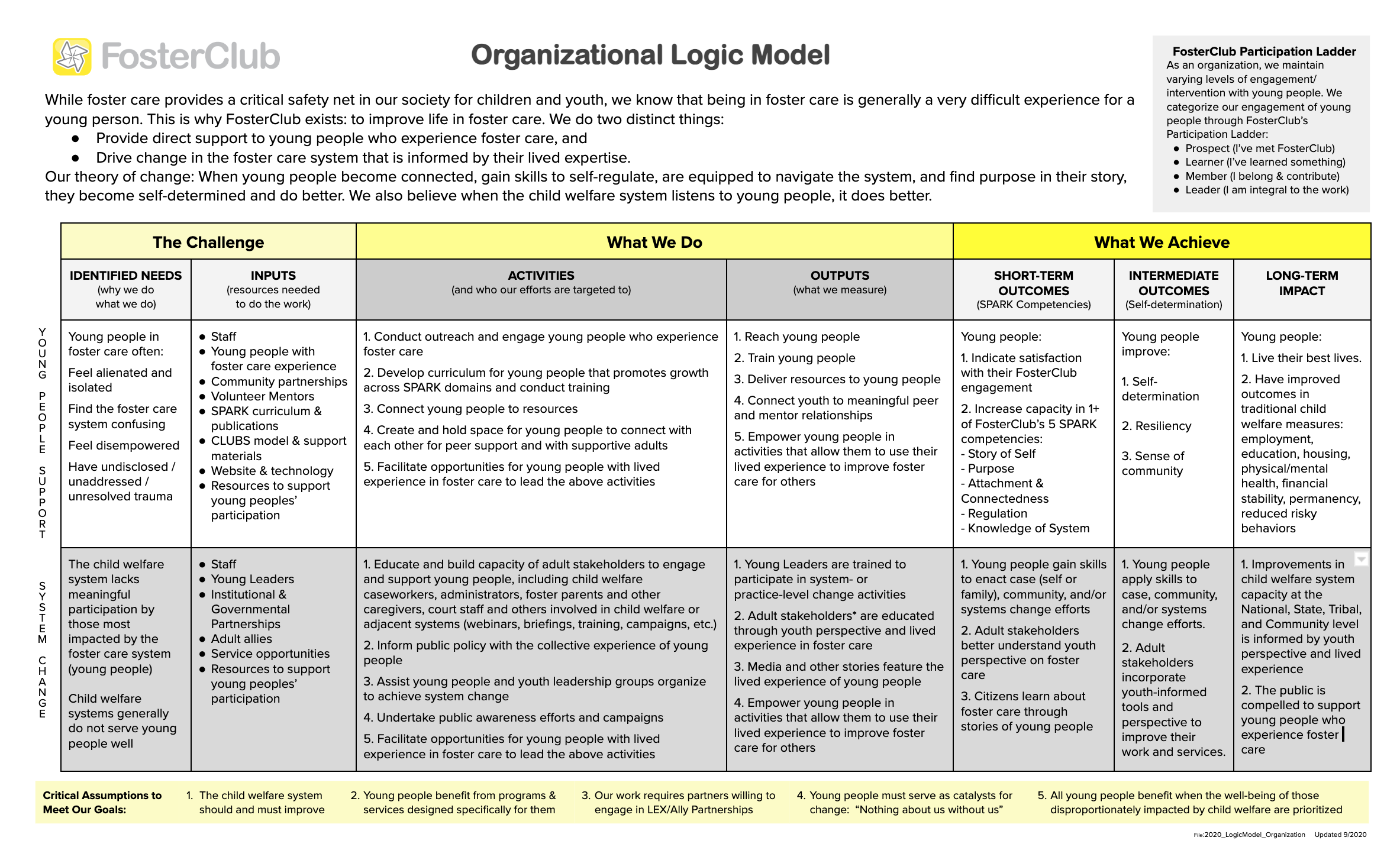Our trauma-informed, evidence-based model has been refined over two decades.
Some people think logic models are boring.
We think ours is pretty awesome.
Maybe we're partial to our logic model because it took over a decade to get right. Or maybe it's because it paints an accurate and authentic picture of what takes place at FosterClub (we've learned that not all logic models do that very well!). Perhaps we're just a little geeky. In any case, we invite you to take a closer look... we'll provide some highlights and dig a bit deeper below.
Our work starts with 5 critical assumptions
1.
The child welfare system should and must improve.
2.
Young people benefit from programs & services designed specifically for them.
3.
Our work requires partners willing to engage in LEX/Ally Partnerships.
4.
Young people must serve as catalysts for change: “Nothing about us without us”
5.
All young people benefit when the well-being of those disproportionately impacted by child welfare are prioritized
If these assumptions resonate with you, we're of the same mind. All our work starts from here.
The problem:
While foster care provides a critical safety net in our society for children and youth, we know that being in foster care is generally a very difficult experience for a young person. This is why FosterClub exists: to improve life in foster care.
What we're doing about it:
We provide direct support to young people who experience foster care, and we drive change in the foster care system that is informed by their lived experience.
The magic is in HOW we carry out the work: LEx Leadership
All our activities are designed for youth engagement.
[ We believe great youth engagement is a cake, not a ladder. ]
Many subscribe to a youth-led model based on Hart's Ladder. However, Hart himself indicated the ladder to be a poor metaphor, as folks misinterpreted it to think the top rung (youth-led) was the highest form of participation. Instead, FosterClub is built on a Youth/Adult Partnership model, better illustrated by Wong's Typology of Youth Participation, incorporating a strategic lens based on Shier's Pathways to Participation. And we even have our own metaphor: Participation is like cake - every bite is good (no matter what tier).

Clubs: because young people do better with peers
Young people who go through foster care gain when they come into community with each other. Engagement improves with peer-delivered services, so most of our activities are carried out using our Club framework (think cohorts or groups).
The benefits are countless — but heres one: the connections grown through the Club framework outlast a young person's direct engagement with FosterClub (there are countless stories of how young people developed relationships at FosterClub that have carried them through their lifetime).
We believ peer support has been an overlooked intervention in child welfare, and we're working to change that.
SPARK Domains: the outcomes we aim for to build self-determination.
We believe young people deserve the skills, knowledge, and support to lead the lives they want for themselves. This is the essence of Self Determination Theory.
Improving "hard skills" — such as money management, apartment hunting, and doing laundry (traditional life skills taught to older youth in foster care) — is important, and every youth deserves opportunities to learn and practice these skills. However, they aren't the drivers self-determination.
FosterClub has developed five domains — as represented by the SPARK acronym — we believe are critical for young people with involvement in the child welfare system. The content we deliver to young people builds life skills, but is strategically designed to build competencies in one or more of the SPARK domains.


Our Approach to Being Trauma-Informed
It starts with understanding the experiences of young people with lived experience (LEx) in the child welfare system. How that knowledge is applied is what makes all the difference, in our opinion. FosterClub focuses on being healing-centered, promoting post-traumatic growth.

Get to Know Our
Training + Tools
We have a range of tools and trainings, including those designed specifically for a youth audience and others for the people who work to support them. All of our tools and trainings are designed with Lived Experience (LEx) at the center.

How We're Building Evidence
Through partnerships with Portland State University's Regional Research Institute, the National Council on Crime & Delinquency (NCCD), and Ceres Policy Research, we've been building evidence to measure the impact of our model.
We're scaling up.
With two decades' experience in developing and refining the FosterClub model, we have the expertise, training, tools, and people to spread our impact.

